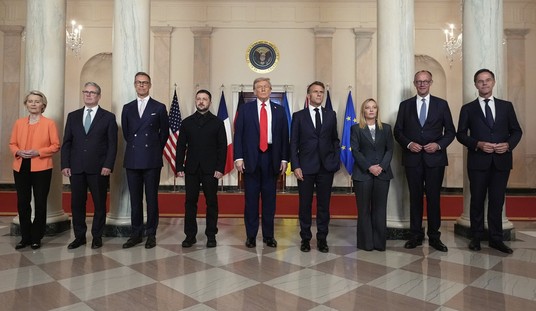National Public Radio admitted Monday that it did cancel an interview with Rep. Mike Pompeo, a congressional critic of the Iran deal, despite having told the Associated Press last week that it had no record of contact with him.
Last week the AP revealed that National Public Radio had taken $100,000 in 2015 from the Ploughshares Fund, a group that White House adviser Ben Rhodes said was helpful in setting up a media “echo chamber” to pass the deal. NPR flatly denied that the donation had any impact on their coverage of the deal. From the AP report:
“It’s a valued partnership, without any conditions from Ploughshares on our specific reporting, beyond the broad issues of national and nuclear security, nuclear policy, and nonproliferation,” NPR said in an emailed statement. “As with all support received, we have a rigorous editorial firewall process in place to ensure our coverage is independent and is not influenced by funders or special interests.”
There was just one problem with this blanket denial from NPR. According to Rep. Mike Pompeo, a critic of the deal, NPR had canceled an interview with him even as it gave air time to Rep. Adam Schiff, a supporter of the deal. Once again, NPR denied it. A spokesperson told the AP it had no record of Pompeo’s requests to be featured on the air discussing the deal. That was it, cut and dry.
Only it wasn’t true. The Washington Free Beacon reports NPR has now reversed itself:
An NPR producer contacted Pompeo’s office on Aug. 4, 2015, to schedule an interview with the lawmaker, according to an email viewed by the Free Beacon.
“We’d like to do this but not live tomorrow morning. Can we schedule a tape time for tomorrow morning or Thursday to air in Friday’s show? This will give us more time to figure out better audio options as well,” NPR producer Kenya Young wrote to Pompeo’s office, according to a copy of the email.
“Let’s aim for Thursday morning at 10am Eastern,” Young wrote later in the day. “I’ll assign a producer in the morning who will get in touch with you, confirm a time, and set up an engineer to tape sync the interview in Kansas. Thanks for reaching out. You’ll hear from someone on my team in the morning.”
NPR decided to nix the interview the following morning…
An NPR spokesman told the Free Beacon, “Rep. Pompeo was booked to discuss the Iran deal in August 2015, but the interview did not take place.” NPR also issued another anodyne statement about editorial firewalls that supposedly prevent their stories from being influenced by big donations to cover specific issues. But when asked by the Free Beacon’s Adam Kredo to explain the initial statement to the Associated Press, denying it had been in contact with Rep. Pompeo, NPR stopped responding. That doesn’t look suspicious at all.
Let’s just state the obvious here. NPR took money ($700,000 over a period of several years) from a group that the White House has identified as part of the Iran deal echo-chamber. NPR says that money didn’t influence coverage, and yet one of the outspoken critics of the deal had his interview canceled and, a month later, had his 2nd approach to the network rebuffed. It has all the appearance of bias. For that matter, NPR’s decision to host Ploughshares Fund president Joseph Cirincione on two occasions to offer positive (and partisan) political spin for the deal looks a lot like pay-for-play.









Join the conversation as a VIP Member